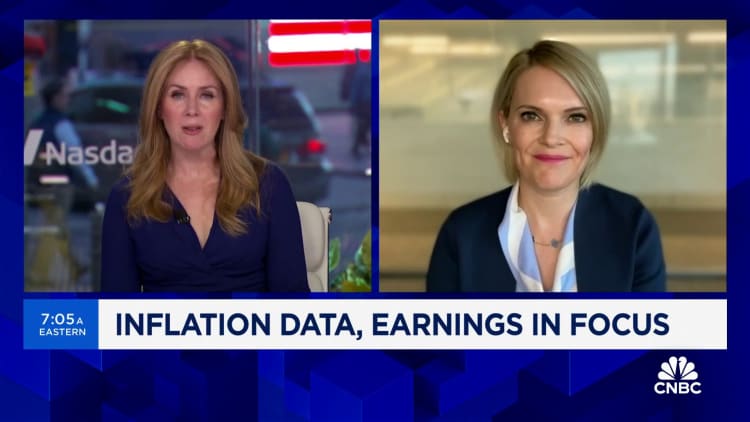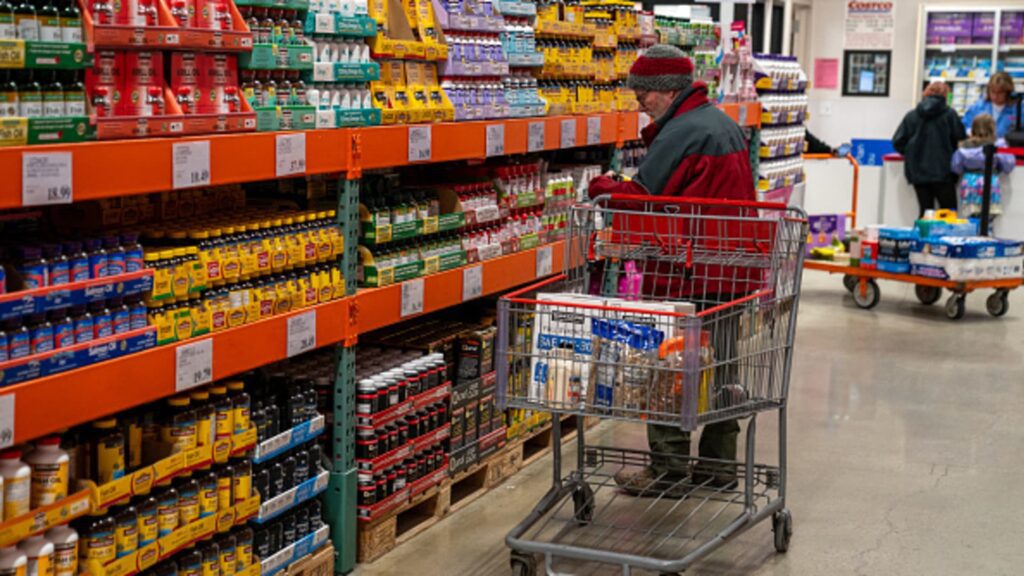A man checks the label of a vitamin jar at a Costco Wholesale store on April 3, 2024 in Colchester, Vermont.
Robert Nickelsburg | Getty Images
Small business confidence hit its lowest level in more than 11 years in March, as owners worried that inflation was still a big problem.
While other data points show inflation falling, the National Federation of Independent Business reported Tuesday that its survey showed a reading of 88.5, down about one point from February and the lowest level since December 2012.
A quarter of survey participants reported that rising costs were the biggest problem.
“Small business optimism has reached its lowest level since 2012 as owners continue to manage multiple economic headwinds,” said Bill Dunkelberg, chief economist at NFIB. “Inflation was once again reported as the biggest business problem on Main Street and the job market has only softened slightly.”
A quarter of survey respondents cited inflation, especially rising input and labor costs, as their most pressing issue. 28% of respondents reported raising average selling prices for this month, while 33% of them planned to raise prices additionally, according to seasonally adjusted data.
As part of those rising costs, 38% said they had raised compensation, up 3 percentage points from February's reading, which was the lowest since May 2021. The Labor Department reported Friday that average hourly wages rose 0.3% in March and 4.1%. A year ago.

The poll comes with other indicators showing that inflation, although not eliminated, is at least falling.
The Commerce Department's measure of personal consumption expenditures prices set the annual inflation rate at 2.5% in February. The measure, which the Federal Reserve uses as its main measure of inflation, showed a level of 2.8% when excluding food and energy, which policymakers prefer as a better indication of long-term trends.
The Consumer Price Index, a figure widely watched by the public, will be released on Wednesday and is expected to show a headline rate of 3.4% and 3.7% at the core level. Federal Reserve policymakers target an annual inflation rate of 2%.
Inflation expectations have been fairly flat in recent months. A New York Fed poll on Monday showed that March respondents expected a 3% interest rate over the next year, unchanged from February. Three-year forecasts rose slightly but five-year forecasts fell.
However, the survey showed a significant jump in rent increase expectations of 8.7% over the next year, an increase of 2.6 percentage points from February. Lower housing inflation is at the heart of the Fed's thesis that inflation will continue to ease toward the central bank's 2% target, allowing interest rates to be cut later in the year.
Fed survey respondents also said they expect rates to rise significantly for most other major components. They expect gas prices to rise 4.5% next year and food prices to rise 5.1%, both 0.2 percentage points higher than the February poll.
